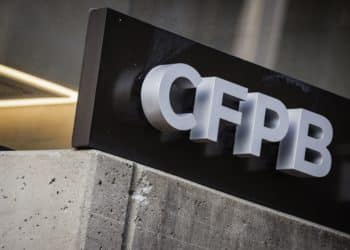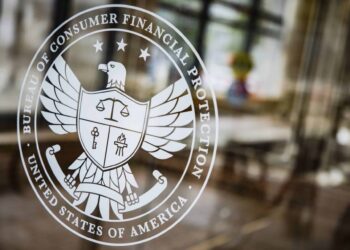
You may recall that last month I wrote about how a cynic might view the Consumer Financial Protection Bureau’s arbitration rule and its corresponding ban on class-action waivers in predispute arbitration agreements.
My cynic held the view that the rule, while purporting to be only a ban on waivers, was really just a back-door attempt at outright banning arbitration agreements in consumer financial products and services. After closer review, my cynic is more convinced than ever that his original view is both correct and supported by the text of the rule.
Let’s review what the rule does:
- It bans the use of waivers in pre-dispute arbitration agreements;
- It permits mandatory pre-dispute individual arbitration to continue, but requires significant reporting to the CFPB about the claims and outcomes of the dispute; and
- It allows the CFPB to make public on its website all of the information reported to it, redacting only consumer names.
As my cynic observed last month, this reporting and publication requirement is enough to cause any financial institution to stop using arbitration agreements entirely. Publishing the name of a financial institution, along with all the facts of the dispute and the outcome, is nothing more than an invitation to the plaintiff’s bar to go in search of a plaintiff for a class action based on the published and arbitrated claim. In other words, not only will the details of a privately contracted claim for arbitration be made public, those details will serve as a red meat buffet for class-action counsel.
Closer inspection of the rule further convinces my cynic that the CFPB has tried to accomplish procedurally what it could not, in good faith, accomplish substantively. I think even th
e CFPB would admit that its so-called arbitration study could not support a decision to ban pre-dispute arbitration agreements. There was simply too much evidence that arbitrations result in significant consumer benefits that even the most reality-challenged CFPB staff couldn’t dispute — e.g., the study tends to show that consumers are awarded more money in arbitration than in a class action. But when one has a solution in search of a problem, one can be crafty in how one achieves his objective. Ergo, the “scarlet letter” reporting requirements.
My cynic has given a lot of thought to how the industry might push back on the CFPB’s plan to put the enrichment of trial lawyers — my cynic believes this is the CFPB’s actual objective — ahead of consumer redress. Here are some of the options he’s considered:
- Convince 51 Senators to block the rule through the Congressional Review Act. There are more than enough votes in the House for a simple majority, but the Senate is a tougher row to hoe as some Republicans have tough elections looming (my cynic mentions Lindsey Graham of South Carolina) and may have some affinity for trial lawyers.
- Challenge the rule in court on the grounds that it is inconsistent with both the CFPB’s arbitration study (DoddFrank requires any arbitration rule to be consistent with the mandated study) and the Dodd-Frank mandate that the rule be “in the public interest” and “for consumer protection.”
- Challenge the publication of the information required to be reported as an ultra vires act (i.e., beyond the CFPB’s authority). The rule requires financial institutions to make public something the parties may have agreed to occur in private, and does nothing to further the CFPB’s claimed need for additional information.
- Challenge Congress’s authority to delegate legislative authority to the executive branch to effectively rewrite the Federal Arbitration Act.
 There are certainly more avenues of attack than these, and absent Congressional action, I think we will see all possible challenges brought to bear, whether from individual institutions, trade associations, or others. Alternatively, the industry may just decide not to fight and instead raise the price of credit, and/or limit access thereto, in order to finance the exorbitant attorney fee awards so prevalent in class actions.
There are certainly more avenues of attack than these, and absent Congressional action, I think we will see all possible challenges brought to bear, whether from individual institutions, trade associations, or others. Alternatively, the industry may just decide not to fight and instead raise the price of credit, and/or limit access thereto, in order to finance the exorbitant attorney fee awards so prevalent in class actions.
This latter approach might even make sense, if combined with long-sought tort/class-action reform legislation limiting the size of awards and attorneys’ fees.
I’m no proponent for hurting consumers; indeed, I’m a consumer myself. But, as a consumer, neither do I feel that every wrong needs to be righted. Whether consciously or not, each of us makes decisions every day about the value of redressing some harm. The trigger point varies depending on circumstances, but there are plenty of things we let slide because the cost or benefit of redress is not compelling.
For example, supermarket scanners are notorious for not updating prices. Sometimes we pay too much and sometimes too little. A five cent error is unlikely to cause most people to even pick up the phone. In fact, I think most people would be unlikely to contact a lawyer to get a class action going for something like that. If they did, I might be more sympathetic to the idea of class actions.
Too often, class actions are instituted by plaintiffs’ lawyers who go in search of plaintiffs for what the lawyers perceive to be a wrong. It is naïve to think the driving force is any kind of justice — if it were, you’d see far more arbitrations than we do. No, the driving force is too often attorneys’ fees, and the more the better. Even the CFPB’s study found that consumers in a class-action recover, on average, $32, as opposed to recovering more than $5,000 in arbitration. So, a rational consumer with a viable claim should almost always choose arbitration over a class action if redress is the point.
Unfortunately, too often it is not. While I’m not letting financial institutions off the hook for bad behavior, trading more consumer redress for less and increasing fees to attorneys who have only a financial interest in the outcome seems a bit warped. Wrapping it in the mantle of “looking out for consumers” is just specious. At least, that’s what my cynic thinks.
Michael Benoit is a partner in the Washington, D.C., office of Hudson Cook LLP. He is a frequent speaker and writer on a variety of consumer credit topics. Michael can be reached at 202-327-9705 or mbenoit@hudco.com. Nothing in this article is legal advice and should not be taken as such. Please address all legal questions to your counsel.




